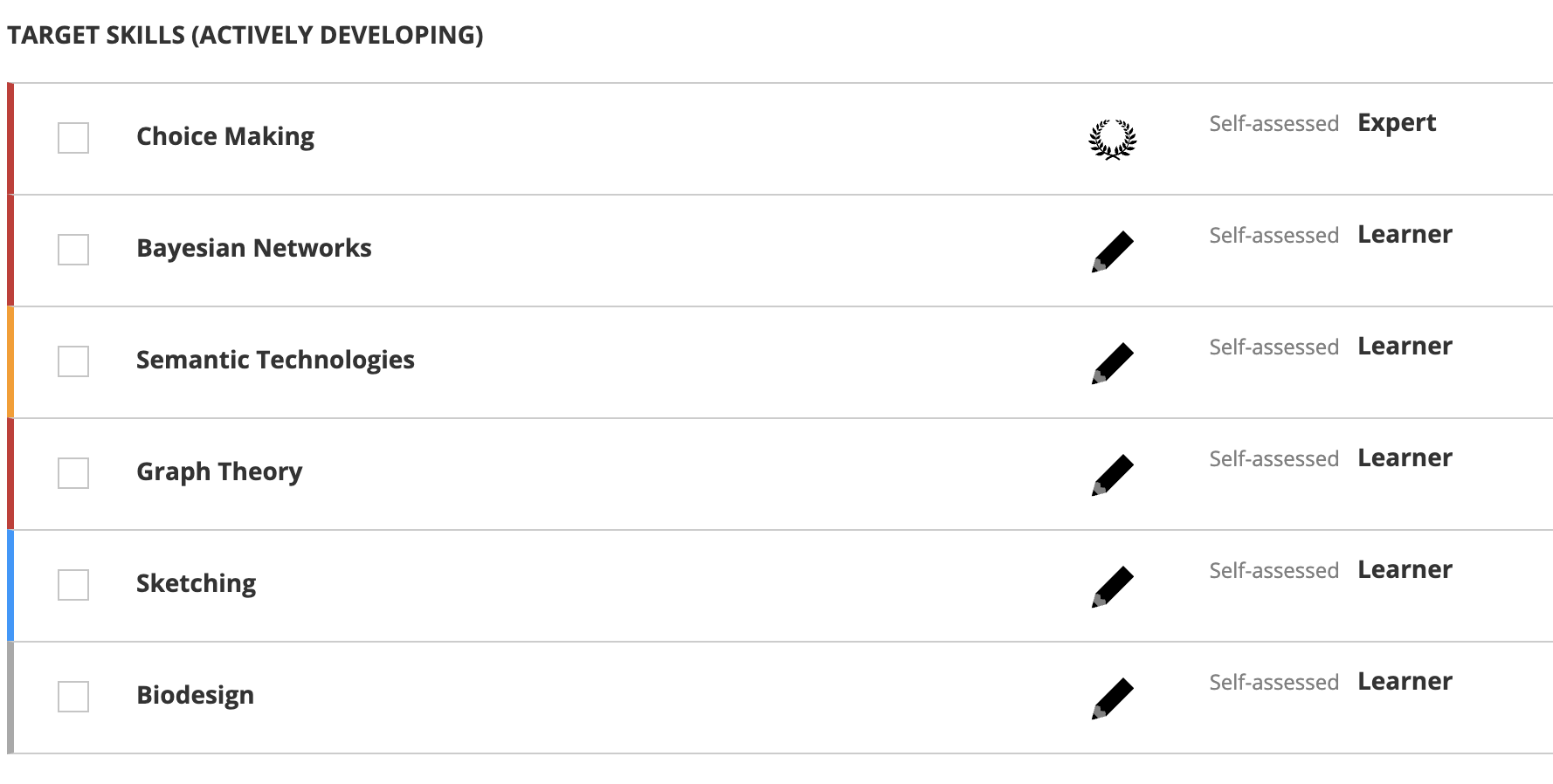Critical Skills - Unlearning
Steven Forth is co-founder and managing partner at Ibbaka. See his skill profile here.
Many of us have set learning goals for 2022. At this point in the year we should have a plan in place and have made some progress. My learning goals align with my target skills on Ibbaka Talent. In order to learn these skills, and start to apply them, I am going to have to start by unlearning.
Unlearning is most difficult when one already knows (or thinks one knows) quite a bit. I have been studying decision making and choice making from my university days, and have over the years built a handful of software systems to support this activity. I have a lot to unlearn.
Unlearning is one of the most difficult critical skills. It seems almost like the opposite of a skill. A clearing of the field that is needed before learning begins rather than a skill in itself.
Unlearning comes up more than once in the learning journey.
Whenever reflection is required there also needs to be unlearning.
Unlearning melts the resistance we all have to learning something new. It removes the fixed connections between ideas and experience that prevent new ideas and behaviours from entering in.
Doubt is another form of unlearning. Once we have learned something we doubt what we have learned. We may doubt the basic ideas (Is this really true?) or their relevance to our own situation (Is this something relevant to me? Is it something I can use in my environment?).
Learning may be the figure, but the figure only exists on a ground of unlearning. It is unlearning that opens the space for potential to be realized.
How does one go about ‘unlearning”?
In Zen there is a state of being called ‘beginner’s mind.’ One of the best books on Zen in English is Zen Mind Beginner’s Mind by Shunryu Suzuki.
Beginner’s mind is defined as
Shoshin (初心) Having an attitude of openness, eagerness, and lack of preconceptions when studying a subject, even when studying at an advanced level, just as a beginner would.
How to do this?
Test different assumptions …
Zen has its own methods of course, based on meditation, mindfulness in daily life (while washing dishes or commuting to work for example), and conversations with a Zen master meant to disrupt one’s assumptions. But what can we do to unlearn in a more prosaic work context?
The first thing is to understand our assumptions. We believe a great many things, often without knowing we believe them. Take some belief you have about your business and ask why you believe that. What needs to be true in order for the assumption to be valid. Then test some other assumptions (more than one, but usually no more than three).
Look at cause and effect differently
Sketch a map, maybe a fishtail diagram, of all the causes of something important that has happened to your business. Then look at the effect you are interested in and ask what it causes. Are there any places where one of the causes becomes and effect? Untying these loops is a key to unlearning.
Work backwards from the current state to see what decisions got you where you are
We sometimes think that things have to be the way they are. ‘That is just the way things are here.’ ‘That is how things are done.’ Before trying to change things, ask why they are the way they are and how they could be different.
Use scenario planning
We often think the future will be pretty much like the present, or that the future is predetermined and only one future is possible. Scenario planning is a powerful way to unlearn our assumptions about the future, and the present. See The jobs of talent scenarios.
The unlearning skill graph
This was a tough graph to construct as the Ibbaka skill graph is thin around the skill ‘Unlearning.’ There are a few people who claim this skill and it almost always shows up in contexts like learning, design thinking and innovation.
This makes me think that we could have a node in the skill graph that is empty. Just a blank node. The mode would be used to answer questions like “What would connect these two skill clusters?” or “Who could connect these two skill clusters?” and “What skill could connect these two people?” I am not sure how a blank or empty node in the skill graph would be generated or managed, but if Ibbaka is meant to help people uncover their potential maybe blank nodes are critical in opening up the graph and representing unlearning.
Ibbaka Posts on critical skills
Critical Skills - Unlearning (this post)





